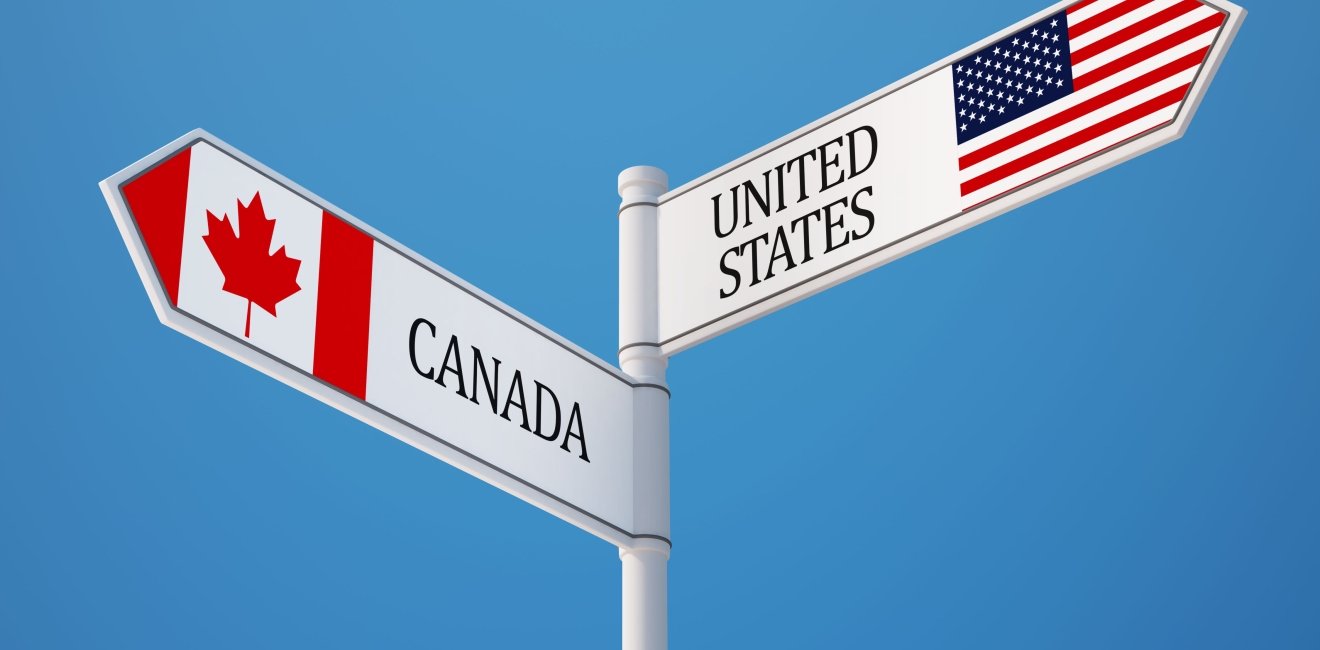This article was initially published in The Ottawa Citizen.
The beauty of the first week of July is that the birthdays of both Canada and United States fall within it. This is an accident of history, of course, but it gives us an opportunity to celebrate the most successful relationship in the world.
Neighbours, friends, allies, partners. Loyal, peaceful, prosperous, enduring. It isn’t American hyperbole to declare that no two countries on Earth have this kind of a friendship. It isn’t Canadian modesty to find something unique in two peoples living harmoniously in North America for two centuries while Europe was tearing itself apart.
Since 1812, we have never gone to war against each other. We have only gone to war alongside each other, in Europe, Korea and Afghanistan. We have maintained the longest border in the world, some 9,000 kilometres. It is no longer undefended, that hoary classroom cliché, but it is unmilitarized.
Who else can claim that? Russia and Kazakhstan, Argentina and Chile, China and Mongolia, Brazil and Bolivia, Pakistan and India all have long borders, but not as storied as ours.
We move goods and services across it every day. We share energy, embrace the free market, honour human rights, freedom, opportunity and dignity. We practise democracy — the United States as a republic, Canada as a constitutional monarchy.
We influence each other, imitate each other, in myriad ways: national parks, public broadcasting, immigration, trans-continental railways, organized labor, a social safety net.
There is a rhythm to political trends and social change in both countries. It is imprecise, as a comparison, but it is striking.
Roosevelt’s New Deal and Bennett’s New Deal. The New Frontier and the Quiet Revolution. The Great Society and the Just Society. Each was different but happened in the same decade. We had regulation and high taxes in the post-war era, for example, and then, under Ronald Reagan and Brian Mulroney in the 1980s, deregulation and lower taxes.
We quarrel endlessly but civilly over trade. On some things, though, we remain fundamentally different. Canada never had institutional slavery or racial segregation, though it did have residential schools, antisemitism and racism. Canada did not have Prohibition, and has legalized pot.
America fought in Vietnam and Iraq; Canada did not. Canada went to war in Europe in 1914 and 1939 and the U.S. did not until 1917 and 1941. It made Canadians feel superior.
Canada embraced peacekeeping as a vocation. Multilateralism, collective security, international law and free trade remain at the core of Canada’s internationalism, but not always America’s.
Ten or so year ago, it looked like we were becoming more alike. In the United States, abortion was widely available, access to health care was expanded, gay marriage was legally recognized. Like Canada. Now, south of the border, abortion is limited. Obamacare isn’t universal. Same-sex rights, and trans-gender rights, are in question. So are voting rights.
Things never seem settled in the United States. The Civil War did not fully free African Americans. It took the civil rights movement to integrate society and now voting rights are being eroded.
Canadians look at Americans today and wince. They see the ambition and ingenuity that has created the world’s wealthiest society. They also see mass shootings, book banning, income inequity, public vulgarity. They see a ghastly tolerance for death, which is why the United States had far more deaths, proportionately, from COVID-19 than Canada.
They see an insidious demagoguery, a belief in conspiracy, and a fear of immigrants.
Canada, for its part, is restricting guns and increasing immigration, sharply. Religion has not entered public life. It is not banning books, restricting abortion, or questioning gay marriage.
It’s fashionable among conservatives to decry life in Canada: forests burning, hospitals overflowing, housing dwindling, prices rising. We are not immune to cultural wars; see the National Gallery of Canada. We have real problems.
For all that though, Canada remains a progressive, stable, tolerant society, diverging from an angry, incendiary, feverish America.
We remain the best of friends, even as our cultural differences have never been as great as they are today.
Author

Associate Professor of Journalism, Carleton University

Canada Institute
The mission of the Wilson Center's Canada Institute is to raise the level of knowledge of Canada in the United States, particularly within the Washington, DC policy community. Research projects, initiatives, podcasts, and publications cover contemporary Canada, US-Canadian relations, North American political economy, and Canada's global role as it intersects with US national interests. Read more

Explore More
Browse Insights & Analysis
360° View of How Southeast Asia Can Attract More FDI in Chips and AI

A Case for a North American Common Tariff


